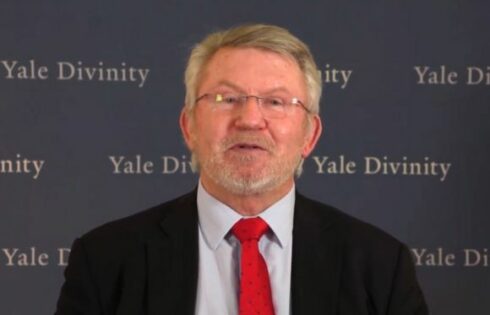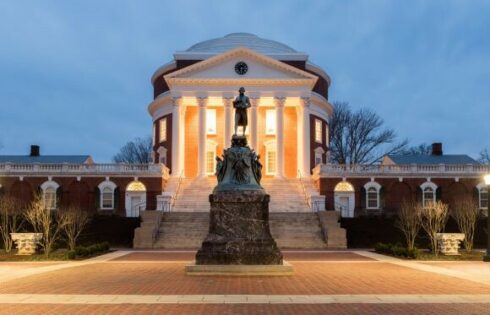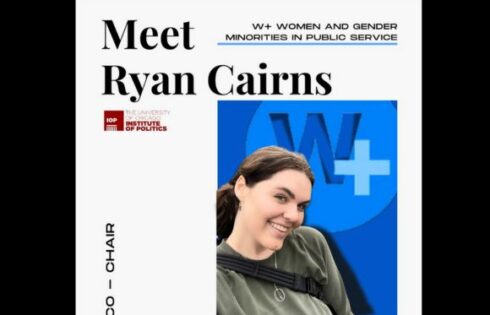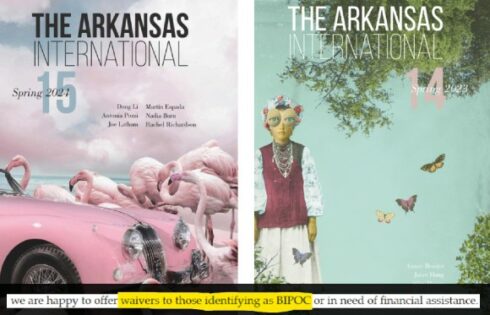
UPDATED
Just a ‘fraction’ of what conservative groups already spent on lawyers?
Nearly nine months after a federal judge ordered them to start settlement talks, conservative groups and the University of California-Berkeley each claimed victory in a First Amendment challenge to the public university’s policies on “high-profile speakers,” “major events” and security fees.
The Berkeley College Republicans and Young America’s Foundation filed suit in April 2017 after the university refused to honor an agreed-upon speaking date for the anti-immigration writer Ann Coulter, and imposed new “curfew and venue restrictions” on their speakers.
Under the Nov. 30 settlement shared with The College Fix, UC-Berkeley will pay the plaintiffs $70,000 in attorney’s fees.
It has promised to consider changes to its “major events” policy that spell out “permissible criteria” for evaluating event requests by groups such as the CRs. The proposed changes also specify which officials are authorized to make decisions.
The settlement includes a “security fee schedule” that UC-Berkeley promised not to increase for at least three years, except to account for “salary and benefit increases” for campus police.
Changes are ‘non-substantive,’ in university’s view
Judging by the parties’ dueling press releases Monday, it wasn’t clear they were talking about the same settlement.
“YAF Wins Landmark Free Speech Lawsuit,” the group crowed in the email subject line, continuing at the top of the release that it “secured victory” in the “hostile” 9th U.S. Circuit Court of Appeals. This incorrectly suggests that trial or even appeals judges had ruled against the university.
This spring U.S. District Judge Maxine Chesney allowed the plaintiffs to continue pursuing their “unbridled discretion” claims against the high-profile speaker policy.
She also told the university it had to explain why it charged three times more in security for a conservative pundit, Ben Shapiro, than a liberal Supreme Court justice, Sonia Sotomayor, when they used the same venue and Shapiro used less space in the venue.
But Chesney dismissed the challenge to the major-events policy because it had already been amended to address her concerns. Administrators also acted in the interest of safety and not viewpoint discrimination in how they treated conservative speakers, the judge ruled.
MORE: Campus cops asked not to use restrooms; would trigger Berkeley students
UC-Berkeley, meanwhile, mischaracterized Chesney’s ruling by claiming that she had declared its major-events policy “constitutional.”
Chesney had actually “questioned the constitutionality” of that policy as originally written, but later declared the challenge moot because the university revised a vague provision on “complexity” several months after being sued.
The university played down the proposed policy changes required by the settlement, calling them “elaborating” and “non-substantive” on Monday. It also emphasized that the new “fee schedule” only applies to events planned for “student union venues … or for classrooms,” and it was in the works before the settlement.
“[T]he University finally felt the heat and saw the light of their unconstitutional censorship,” agreeing to allow free expression “long squelched by Berkeley’s scheming administrators who weaponized flawed policies to target conservatives,” a YAF spokesperson wrote in a release.
Landmark #freespeech settlement for clients @yaf and @BerkeleyCRs filed with the NDCA today, and may be found at link. Under this new policy, UC Berkeley abolishes its prior speech policy and replaces it with one that treats all speakers equally: https://t.co/I0ONOd3wBZ
— Harmeet K. Dhillon (@pnjaban) December 3, 2018
Must provide ‘objective and credible evidence regarding actual threats’
The settlement allows the plaintiffs to resurrect the lawsuit if UC-Berkeley does not enact the proposed policy changes “in substantial part.”
The university’s Office of Risk Services will “recommend” changes to the major-events policy, whose “next review date” was Oct. 31.
The proposed revision removes vague and uncertain language from the policy, including that groups such as YAF and the CRs “may” host major events. Events are no longer required to support “the campus mission.”
It deletes an entire section that declares an event “major” if its “complexity,” undefined, requires additional administrative support.
The officials “authorized” to make this declaration would be limited to the chancellor and that person’s designees, who must be vice chancellors, assistant vice chancellors or associate chancellors. Campus police will no longer be allowed to declare an event “major.”
MORE: Judge wants to know why Sotomayor was treated better than Shapiro
The proposed revision lays out 18 new criteria for determining whether an event is “likely to significantly affect campus safety and security or significantly affects campus services,” and has “a substantial likelihood of significantly interfering with other campus functions or activities.”
They include “objective and credible evidence regarding actual threats to campus safety or security” – which in theory rules out the so-called heckler’s veto – and “similar viewpoint- and content-neutral considerations relevant to assessment of campus safety, security, and services.”
Campus police are no longer authorized to set security fees based on several criteria. The university now promises to “bear all costs” if the campus “requires additional security beyond what the published [security fee] schedule anticipates.”
Student groups that want to publicize their events must submit “initial publicity materials” to the LEAD Center for review, but can distribute other materials after that as long as they have “the same accurate event details.”
UC-Berkeley pays $70,000 to settle lawsuit by conservative groups, considers policy changes by The College Fix on Scribd
‘All but indistinguishable from a courtroom victory’ for UC-Berkeley
The university agreed to rescind its “unconstitutional” policies, “abolish its heckler’s veto” and stop treating conservative students as “second-class members of the community,” YAF said Monday.
“No longer can UC Berkeley place a 3:00 p.m. curfew on conservative speech,” ban ads for YAF-sponsored events or “relegate conservative speakers to remote or inconvenient lecture halls on campus while giving leftist speakers access to preferred locations,” it said, alluding to allegations from its lawsuit.
YAF is pleased that “the security fee will be zero” as long as students aren’t “handling money or serving alcohol” at their events, and that “university facilities will be available to students on a first-come, first-served basis” – which is “a blow to radical Antifa mobs.”
UC-Berkeley portrayed the settlement in starkly different terms, sending at least two press releases to the media Monday.
Using boldfaced type in several places, the university said it has not conceded that there’s “any basis in fact” for the “unsubstantiated allegations” of viewpoint discrimination. It pointed to “thousands of emails and other documents” it has released as evidence it did not discriminate.
MORE: UC-Berkeley forces Shapiro hosts to pay $15,000 for police that ‘forego arrests’
The “complexity” criterion for a “major event,” removed as part of the settlement, was “never actually applied to an event on campus,” it said. The revised policy “further clarif[ies]” criteria to “re-emphasize the existing and repeatedly stated campus policy against discriminating on the basis of a speaker’s viewpoint.”
It said the new fee schedule is “consistent with existing practice” for registered student organizations, which don’t pay such fees for student union venues and classrooms. The university named several conservative speakers who used classrooms this spring with no security fees, including Turning Point USA President Charlie Kirk, “The War on Cops” author Heather Mac Donald and radio host Dennis Prager.
There is no change, however, to “the process and criteria” for establishing costs when student organizations request security, the university emphasized.
It suggested that YAF and the CRs wasted money taking the university to court, claiming its $70,000 payment is “a fraction of the attorney’s fees that plaintiffs incur in a lawsuit of this sort.”
University spokesperson Dan Mogulof said the settlement was “all but indistinguishable from what a courtroom victory would have looked like,” saving the university “hundreds of thousands of dollars in unrecoverable defense costs” if it had continued fighting in court.
Asked how much it spent in legal fees, YAF spokesperson Spencer Brown deflected the question.
“The real question that ought to be answered, regarding spending, is: How much taxpayer money has UC Berkeley spent on its white shoe law firm in their now-failed attempt to deprive Berkeley students of basic freedoms?” he wrote in an email to The Fix.
Mogulof told The Fix in an email Tuesday that UC-Berkeley spent “approximately” $250,000 to date on legal fees related to the lawsuit, and was expecting to spend another $1 million by “the end of a fully litigated process.” That’s why the $70,000 “partial reimbursement” to the plaintiffs was a “good use of campus resources.”
He said the money came from campus general funds, which “predominantly” comes from Administrative Full Costing fees:
AFC fee is charged on external funds received from the sales and services of educational activities, auxiliary enterprises, agency activities, service enterprises, and other operating revenue. So, in other words, no state funds or tuition dollars were used to pay the legal expenses.
UPDATE: The university told The Fix how much it’s spent on legal fees thus far and the source for that money. The article has been amended accordingly.
MORE: UC-Berkeley says it can’t be sued because it’s making ‘new policy’
IMAGE: S Photo/Shutterstock
Like The College Fix on Facebook / Follow us on Twitter






Please join the conversation about our stories on Facebook, Twitter, Instagram, Reddit, MeWe, Rumble, Gab, Minds and Gettr.